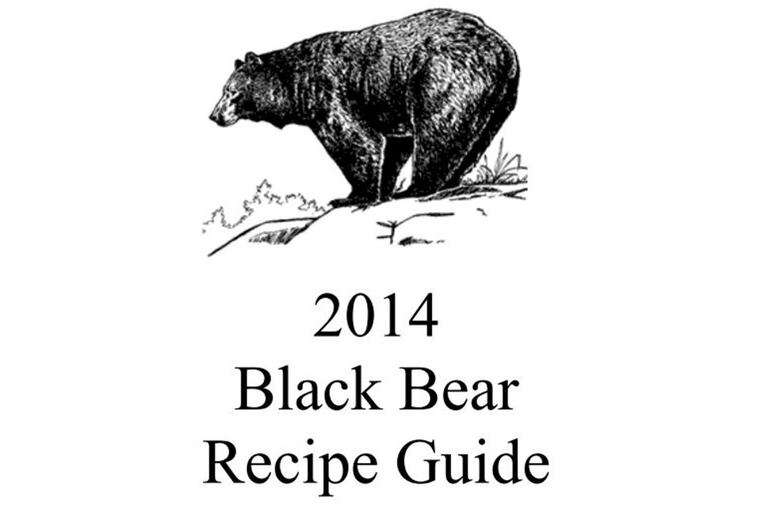Would you eat bear? New Jersey has some tasty recipes
Bears are edible, but that comes with a caution. The meat can carry two nasty parasites, Trichinella spiralis and Toxoplasma gondii. Otherwise, connoisseurs say bear meat can be quite tasty, especially when aged.

What exactly do you do with a 6-foot-long, 400-pound black bear carcass?
Eating it is one possibility.
With proper cooking, black bear meat is safe, according to the New Jersey Division of Fish and Wildlife. The meat should be cooked at 375 degrees for 20-25 minutes per pound — similar to pork. Internal temperature should reach 160 degrees for three minutes or more before eating. There should be no trace of pink in the meat.
That's because the meat can carry two nasty parasites, Trichinella spiralis and Toxoplasma gondii. The parasites cause trichinosis and toxoplasmosis.
Symptoms of trichinosis include nausea, diarrhea, vomiting, fatigue, fever, and abdominal discomfort, according to the Centers for Disease Control and Prevention. Headaches, fevers, chills, cough, swelling of the face and eyes, aching joints, muscle pains, and itchy skin are also common. In severe cases, trichinosis can be fatal. Toxoplasmosis can induce flu-like symptoms with swollen lymph glands and aches and pains in muscles that last for a month or more. Severe cases resulting in organ damage can occur in people with weakened immune systems.
But cooked properly, bear meat is edible.
It has a distinct taste. As with most animals, the flavor derives in part from their diet. Bears that live on the West Coast can feast on salmon, which can yield meat that tastes fishy.
Black bears on the East Coast eat whatever they can find. Most of their diet is plant-based: berries, grasses, tubers, nuts, and fruit. This time of year, they gorge on acorns, beechnuts, and hickory nuts. At other times, they chow down on insects, bird eggs, small mammals, and even carrion, such as a deer carcass. They will also eat human garbage when they can get it, which is a recurring problem in New Jersey and why experts say the bear population has grown.
The taste of bear meat is often described as gamier than beef, but sweeter than venison. Bear meat connoisseurs — of which there are apparently some — say freezing or canning the meat within a week after a hunt ages the flavor.
In fact, the Division of Fish and Wildlife has produced a 17-page booklet that includes how to butcher a bear and 20 recipes for the meat. Among the recipes: sweet & sour pot roast, shepherds pie, gumbo, bear fat pie crust, osso bucco, stew, and teriyaki jerky.
It's unlikely you'll find the meat at your local eatery, though. Hunters are prohibited from selling it to restaurants.